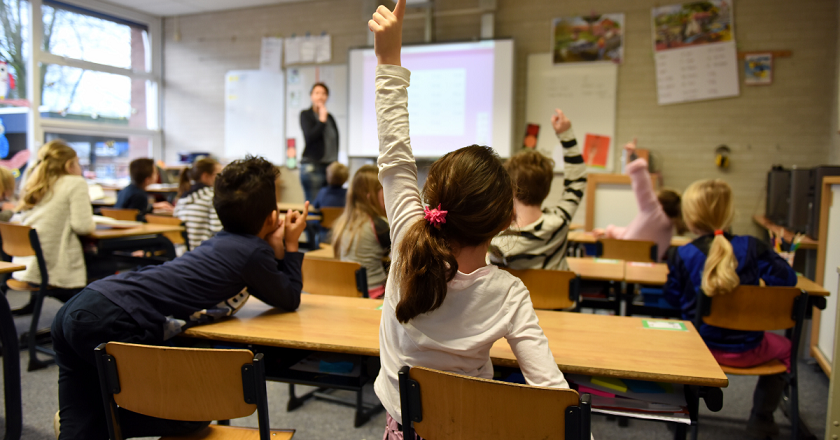Strategies from Applied psychology for promoting Mental Health in Schools.
Introduction
In the busy hallways of higher education, the emphasis on scholastic success frequently takes precedence over the vital need to support students’ mental health. As the relationship between academic achievement and mental health becomes more widely recognized, educational institutions are looking to applied psychology for research-based approaches. In this investigation, we look into practical advice and analytical methods to support mental health in schools, fostering learning settings where students flourish emotionally as well as academically.
Recognizing the Landscape
Students’ mental health is greatly influenced by their school environment. The complicated backdrop created by adolescent problems, social dynamics, and academic expectations calls for deliberate intervention. Applied psychology offers a thorough framework for addressing these issues and promoting a culture of mental well-being because of its evidence-based techniques.
Creating an Inclusive and Supportive School Culture
Establishing an inclusive and supportive school culture is the first step towards boosting mental health. The field of applied psychology places significant emphasis on the cultivation of a sense of community, safety, and belonging in educational settings. Building strong bonds between instructors, staff, and students lays the groundwork for prioritizing mental health.
Executing Programs for Social-Emotional Learning (SEL)
Programs for social-emotional learning are the foundation of applied psychology in educational settings. These well-researched programs give kids critical life skills including empathy, self-control, self-awareness, and effective communication. Schools give students the tools they need to negotiate the intricacies of emotions and relationships by including SEL into the curriculum.
Stress-Reduction Techniques
Applied psychology acknowledges the value of mindfulness techniques in lowering stress and improving mental health. By including mindfulness practices like yoga, meditation, and mindful breathing exercises into the school day, kids can become more emotionally resilient and learn to handle both personal and academic problems.
Early Intervention and Mental Health Screening
According to applied psychology, early intervention is crucial. By putting in place mental health screening programs, schools can detect possible issues early on and offer the assistance that they need. By using an analytical approach, educators can customize interventions to meet the requirements of each student, promoting a proactive approach to mental health.
Strategies in Action
Putting applied psychology strategies into practice calls for a multifaceted strategy. The following are some ways that schools can implement these strategies:
Integrate SEL in the Curriculum Integrate social-emotional learning into a range of topics, giving students the chance to employ these abilities in practical situations. By integrating SEL into the educational process, this approach guarantees that students’ intellectual and emotional intelligence is improved.
Establish Safe Spaces for Expression
Set aside certain areas where kids feel free to share their feelings and ideas. Peer support groups, counseling offices, and even spaces set aside for quiet introspection may fall into this category. These areas support a culture that normalizes asking for help and expressing feelings.
Work together with mental health specialists
Establish collaborations with mental health specialists to offer further assistance. Social workers, psychiatrists, and school counselors are essential in recognizing and treating mental health issues. A comprehensive approach to the well-being of students is ensured by collaborative efforts between mental health specialists and educators.
Work Together with Mental Health Experts
Establish alliances with mental health specialists to offer further assistance. Social workers, psychiatrists, and school counselors are essential in recognizing and treating mental health issues. A comprehensive approach to the well-being of students is ensured by collaborative efforts between mental health specialists and educators.
Give Teachers Instruction
Give educators instructions on how to spot mental health symptoms and how to use supportive techniques. Programs for professional development that emphasize mental health awareness give teachers the tools they need to foster a caring atmosphere and effectively meet the varied needs of their students.
Train Teachers
Give teachers the tools they need to spot mental health symptoms and put supporting measures in place. Programs for professional development that emphasize mental health awareness give teachers the tools they need to foster a caring atmosphere and effectively meet the varied needs of their students.
Examining the Effect
Applied psychology techniques have a quantifiable, anecdotal impact on mental health promotion in schools. Prioritizing mental health in schools’ results in increased overall well-being, decreased disciplinary problems, and improved academic performance. Analyzing data on academic performance, attendance, and student well-being offers important insights into how effectively programs are working.
Conclusion
In conclusion, applied psychology becomes a guiding light as schools take on the duty of fostering both academic achievement and mental well-being. Schools may build environments where students prosper emotionally and academically by incorporating evidence-based practices, cultivating supportive cultures, and placing a high priority on early intervention. By taking an analytical approach to improving mental health in schools, we open the door to a time when kids’ overall wellbeing is prioritized.
